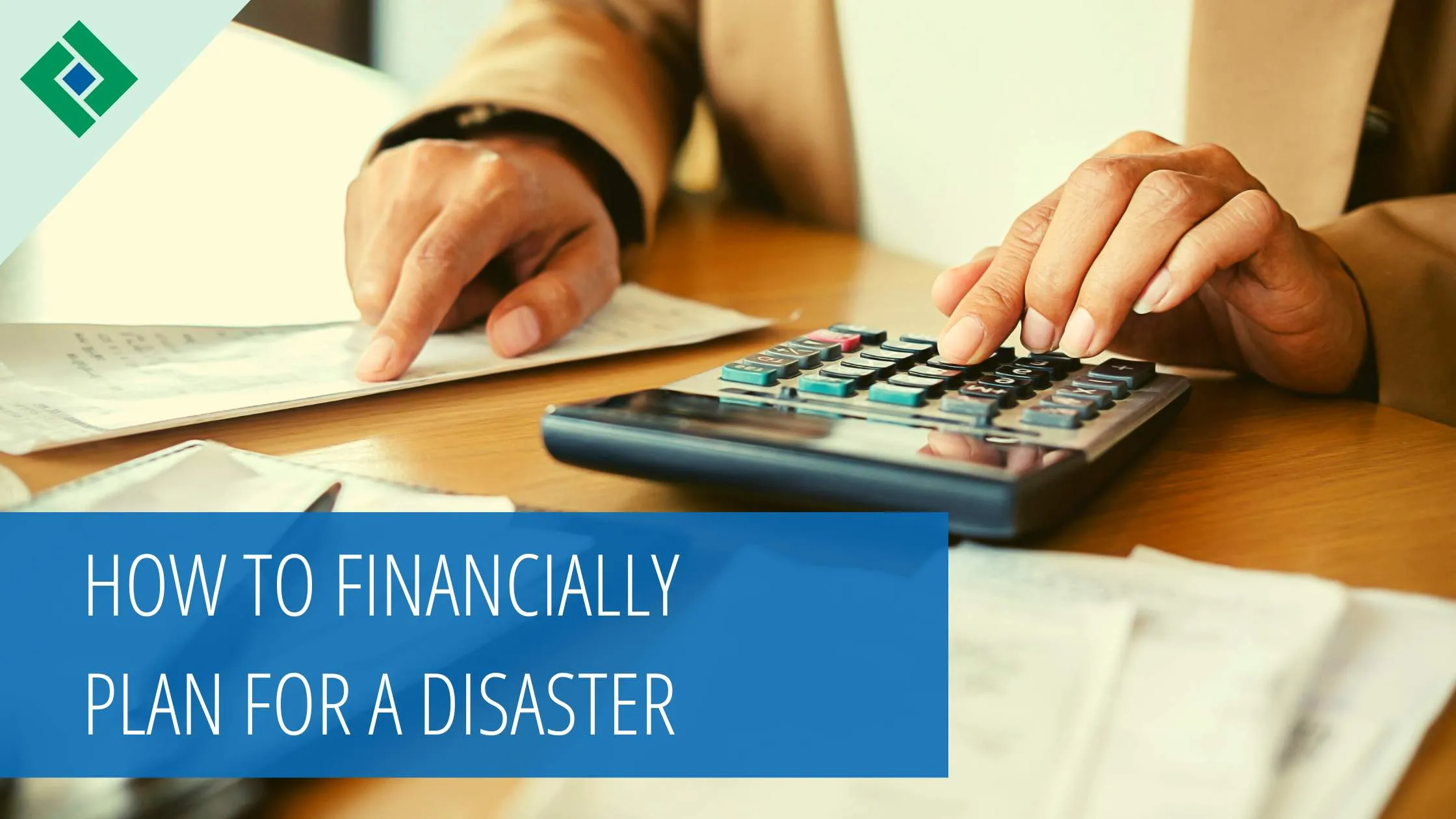How to Financially Plan for a Disaster

How well you bounce back after a catastrophe may boil down to this: How much money did you put away for it?
Natural disasters are on the rise, including many we face in Florida: hurricanes and tropical storms, flooding, heatwaves, wildfires, and more. They’re happening more frequently and are more severe than ever before – and the cost of the damage they’re causing is astronomical. Hurricanes are among the costliest of these disasters.
Safeguarding your future involves a lot of hoping for the best while preparing for the worst. Financial planning should be the bedrock on which your disaster preparedness is based. It can help homeowners and renters minimize their financial losses and recover more quickly when a disaster strikes.
With September being National Preparedness Month, it’s the perfect time to remember just how important it is to plan ahead, fiscally and otherwise, for emergencies. Here are some key points to consider when creating your disaster preparedness financial plan:
Start an ‘Emergency Fund’
Having enough money for unexpected emergencies serves as a buffer between you and the high-interest debt of credit cards and other methods of getting extra cash, fast.
You’ll want to maintain an emergency savings fund with enough money to cover at least 3- to 6-months' worth of your living expenses. This will help you manage your immediate expenses if a disaster prevents you from working or damages your property. The easiest way to fund your emergency monetary stash is to treat it as an ongoing, regular expense, much like a mortgage payment or utility bills.
Here are some strategies to help you set up an emergency fund as part of your disaster preparedness:
• Establish a separate checking or savings account for the emergency fund.
• Set up automatic transfers into it on a regular basis.
• Include payments to the fund in your budget.
• Start small and gradually increase the amount you pay into the fund.
• Don’t dip into this account to help cover shortages elsewhere – use this only for sudden, unexpected events.
Keep a small but appropriate cash reserve on hand, enough for a week or so, assuming power goes out after a storm and you’re unable to get to an open bank or working ATM. Also, small bills ($20s) are more readily accepted in the aftermath of a hurricane, than big bills ($50s or $100s).
Buy Homeowner’s or Renter’s Insurance
Even if you’re already insured, review your homeowner’s or renter’s policy and make sure it’s up to date. Does it cover everything you need it to – and for adequate amounts? Consider adding flood insurance to your policy, especially since rising water (aka flood) coverage doesn’t come with standard homeowner’s policies.
Do you have expensive valuables you’d have a hard time replacing, such as jewelry or artwork? If so, you might need umbrella coverage. Worried about your dog biting or injuring guests in your home? Consider animal liability insurance. Don’t worry if you’re unsure about what you need – your Florida Peninsula agent can help find the right type of coverage for you.
Plan for Repairs
You already know your home may require significant repairs after a disaster, such as if you were in the path of a major hurricane or your home got flooded. But did you also know: Even when nothing goes wrong, you should expect to make periodic repairs and improvements as well as conduct regular maintenance to help fortify your home against severe weather and other adverse events.
Document, Document, Document
An important part of disaster preparedness is gathering all your important information and documents and keeping them safe. Consider keeping them in a safe deposit box or another secure location outside your home, such as a digital storage solution.
So, what should you focus on? Start with an updated property inventory of the valuable items in your home. This includes taking photographs, recording serial numbers, and estimating the value of your possessions. The more detailed your inventory, the better it will assist you with filing a claim after a disaster.
Essential financial and legal documents you’ll want to protect include your homeowner’s or renter’s insurance policies, property deeds, bank account information, passports, IDs, birth certificates, social security cards, marriage certificates, powers of attorney, wills, and medical information.
Does Your Disaster Preparedness Include Saving Money? It Should
Remember, disaster preparedness is a dynamic process – it changes as your life and financial situation evolve. Plan to regularly review and update your emergency fund and overall disaster preparedness plan to ensure it reflects your current situation. This includes making sure your homeowner’s, condo, or renter’s insurance coverage is enough to support you and your family in an emergency.
Here is more information about financial planning as a part of disaster preparedness:
• FEMA's Emergency Financial First Aid Kit (pdf)
• Disasters and Financial Planning guide (pdf), a joint project of the American Red Cross, the American Institute of Certified Public Accountants (AICPA), and the National Endowment for Financial Education (NEFE)
At Florida Peninsula Insurance Company, keeping you and your loved ones safe and protected is our top priority. As one of Florida’s largest homeowners insurance companies, we offer a variety of coverage options. Call your agent to find out more. Not currently a policyholder with us? Get started with an online quote now.

